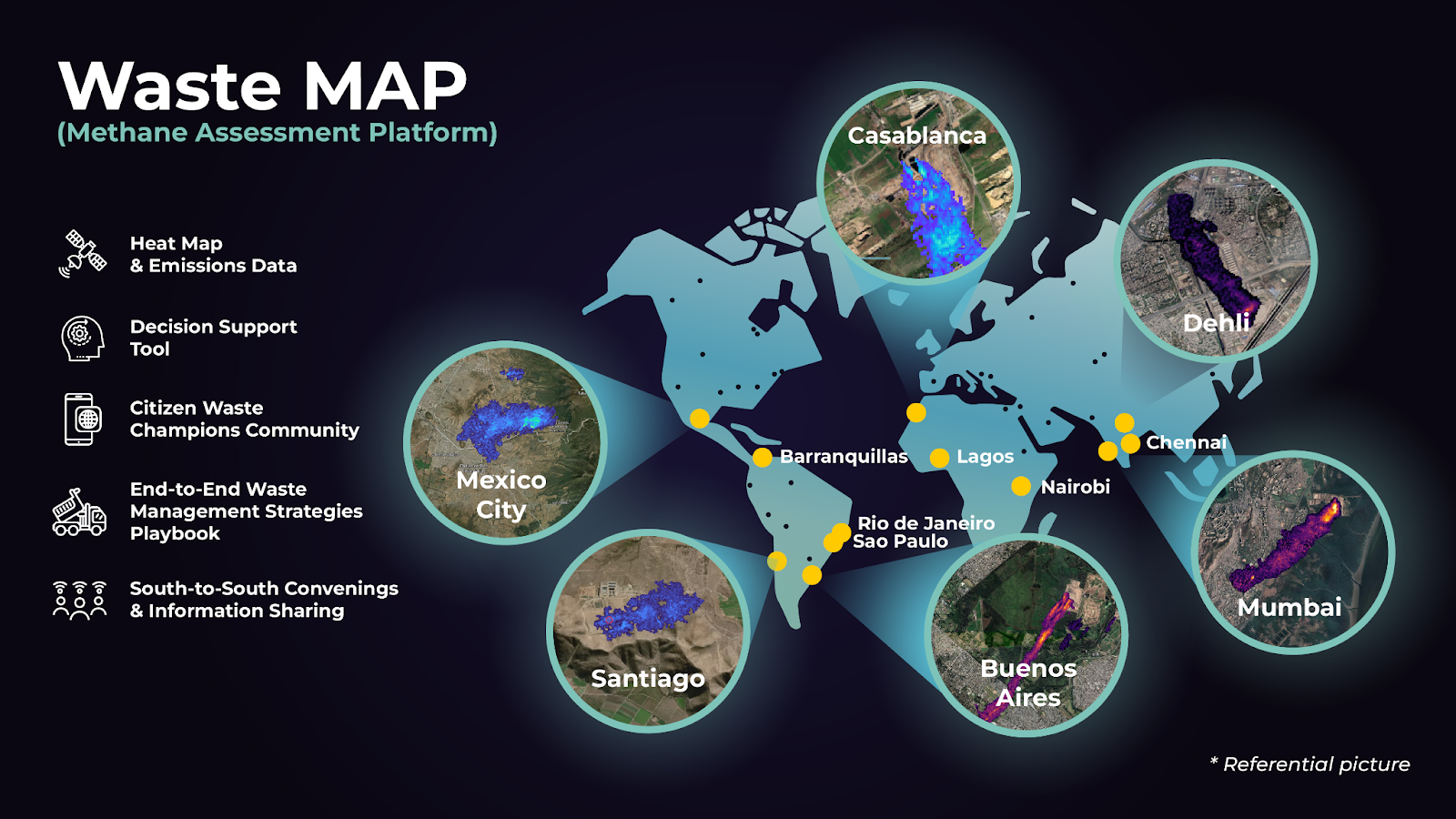New York, NY (September 20, 2023) – Today, the Global Methane Hub (GMH), the largest international philanthropic initiative dedicated to methane emissions, announced it and its partners Rocky Mountain Institute and Clean Air Task Force, received a grant from Google.org to build the Waste Methane Assessment Platform (Waste MAP), the first-ever global platform to use satellite monitoring to track and measure the locations and amounts of methane emissions from waste.
The Waste MAP is one of the six projects awarded $5 million from the $30M pool of Google.org’s Impact Challenge for Climate Innovation this year. The platform, which consolidates satellite information on landfill methane emissions, will enable local governments and NGOs to pinpoint the exact location of a methane source, allowing them to intervene and mitigate the emissions before they become hazardous.
The technology will help create safer living conditions for 135 million people around the globe by reducing public health emergencies created by methane, such as landfill fires, explosions, and air pollution.
“When left unchecked, big emitters of methane emissions, like landfills, create serious public health impacts and threaten the quality of life for communities around the world,” said Marcelo Mena, CEO of the Global Methane Hub. “The Global Methane Hub is looking forward to our partnership with Rocky Mountain Institute and Clean Air Task Force and the support from Google.org as we use innovative technology and solutions to decrease methane emissions from landfills.”
The Global Methane Hub collaborated with the Rocky Mountain Institute (RMI), the Clean Air Task Force (CATF), SRON Netherlands Institute for Space Research (SRON)/GHGSat, and Carbon Mapper to develop the platform, which will be launched as a beta version at COP28 in Dubai, UAE.
Using machine learning and AI, the Waste MAP will include a global heat map of municipal solid waste emissions, a strategic playbook to guide decision making, case studies from global experiences, and a pilot mapping tool for stakeholders. The platform has already begun the implementation phase in India, USA, Mexico, Colombia, Ecuador, and Nigeria, among others, whose will benefit from increased access to granular and open-source waste and methane emissions data and from improved action for methane reduction.
